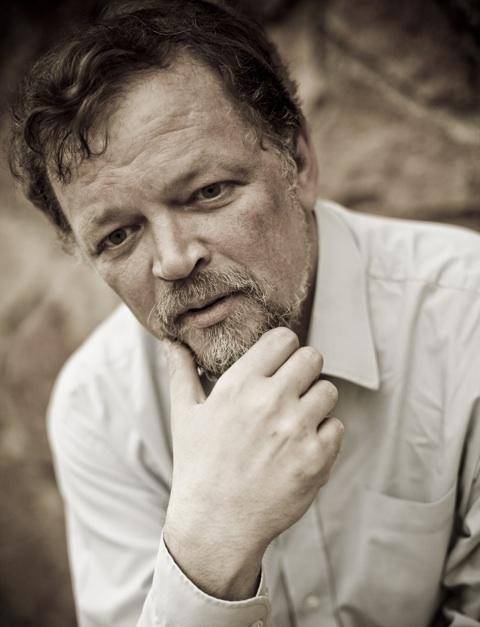Piano ballades and fantasies are the repositories of dreams. They are the places where the mind is left to wander, to roam precipitously, unaided by known paths, undisturbed by familiar structures. The romantic fantasies and ballades of last night's Wigmore Hall recital plunge and soar, catch you by the feet and dangle you by the ankles. To cast the right spell, to heave the right ho, you need the right storyteller, one like the ancient Mariner: a glittering eye, a hoary beard, a man of myth and terror. In fact, you need what we got: the towering Paul Bunyan-like Russian, Nikolai Demidenko, who looked like he might eat the audience.
It’s a relief to find that there are still musicians out there spinning a good Russian yarn and making fresh sense of the country's quintessentially dark and rough ways. Classical music is full of undeserving Russians trading cheaply on an exotic name and glum face that it is often easy to forget that the fabled Russian soul does exist and that it is a rich and nutritious bowl to sup from.
The all-Western programme was transformed by Demidenko’s soulful bass-driven power. No Mendelssohn has ever sounded so elemental. The Fantasy in F sharp minor breathed a fiery, possessed line that blew around like a sea wind. Demidenko concentrated the drama to two moments, to a developmental wave in the middle and a ghostly return of the opening subject above a sustained bass chord near the end. It more than compensated for some lapses in attention (from both audience and pianist) elsewhere.
Grieg’s Ballade in G minor was more introverted, more personal. The melodic fragment that is the base for a set of variations is a doleful little thing, ill at ease and lacking declamation. It works its way through various permutations with a tortured insistency. Demidenko teased its incarnations this way and that (echoing Debussy, Musorgsky and Puccini), as if blowing daydream bubbles out of the supple musical material.
With de Falla’s Fantasia Baetica we entered the interval with a theatrical flourish. Percussive thunderclaps and ornamented oriental octaves suggested a shaman’s dance. It was brutally, violently, hammered out by Demidenko’s massy forearms. All the Western tableaux of the first half had been decommissioned for Russian re-use very effectively. These pieces were now engaging in a sort of professional bleakness that only Russians know how to summon up. But not all had gone well.
Technically, Demidenko was struggling. There were problems in all three pieces, leading to an almost total loss of momentum in the Grieg owing to a hesitancy in the leaps. It had never threatened my pleasure completely but it didn’t bode well for the Schumann Fantasy in C in the second half. In fact, a colleague left in the interval for fear of hearing this masterpiece being felled by a complete technical collapse.
What actually happened was quite the opposite. Understandably perhaps, there seemed to be a greater respect and love for this work from Demidenko, and therefore a greater level of concentration and concern in getting it right, than for the others. It elicited a fluent, breathtakingly powerful and rather unique performance. The first movement felt almost improvised, each return of the opening subject building on the last in dialogue and renewal with all around it. The second (remarkably clean considering the technical dirt earlier in the programme) had the audience gasping at the gutsy head-first Cossack-like pitching.
The last movement confirmed what was clear throughout: that Demidenko is a conjuror of the depths, a Poseidon-like figure, never happier than when wallowing in the glories of the piano bass. He was helped here by a Fazioli piano that was fantastic in the lower register – though thin in the middle and a little colourless up top.
With two stooped, broken morceaux encores from Vasily Kalinnikov and Mikhail Glinka to end, the concert drew to a close. This was not a perfect recital by any means but it was one whose serious, self-conscious melancholy in a typically Russian vein was truer than I had ever heard it expressed before.
- Nikolai Demidenko's past recordings include two superlative live performances from the Wigmore Hall














Add comment